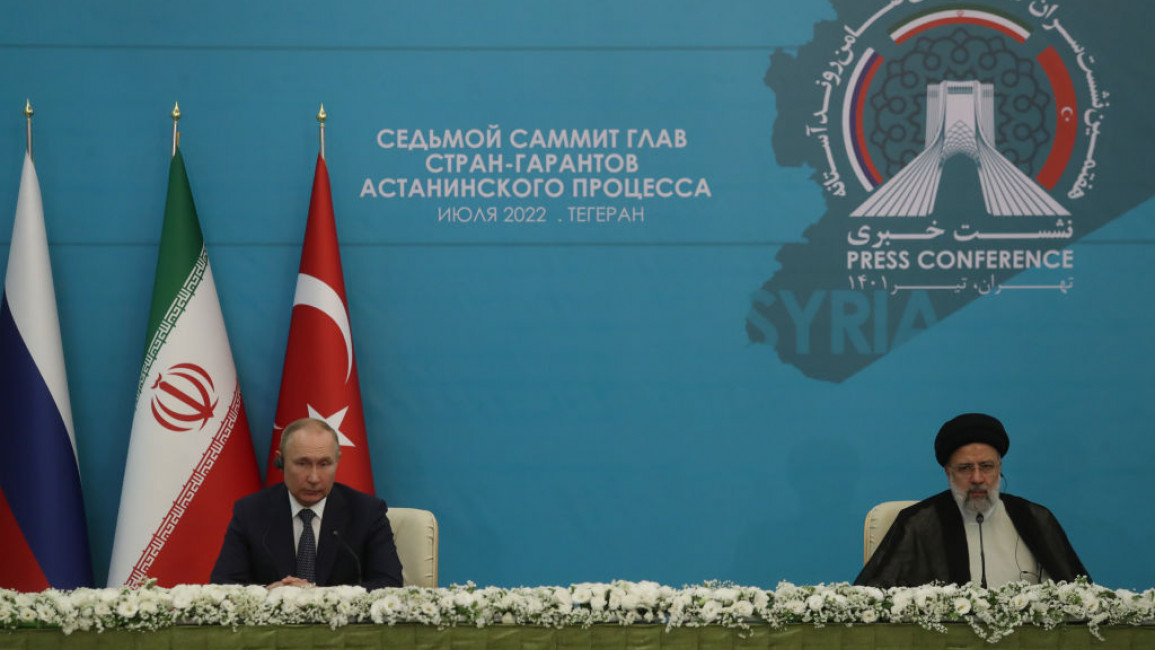Iran risks dependency on Russia after welcomes Putin, US says
The United States on Wednesday warned Iran that it risked dependency on an isolated Russia after it welcomed President Vladimir Putin, although the CIA chief acknowledged the two nations have uneasy ties.
Putin on Tuesday visited Tehran for a three-way summit with his counterparts from Iran and Turkey that was nominally about conflict-ridden Syria.
On the sidelines of the summit, Iran's Supreme Leader Ayatollah Ali Khamenei called for "long-term cooperation" with Russia, even though Tehran earlier tried to show its neutrality by abstaining from a key UN vote on condemning Moscow's invasion of Ukraine.
"Iran has now cast its lot with a small number of countries who wore that veil of neutrality only to end up supporting President Putin in his war against Ukraine and the Ukrainian people," State Department spokesman Ned Price told reporters.
The United States recently released intelligence purporting to show Russian delegations visiting Iran to assess combat drones as it looks to bolster its arsenal against Western arms in Ukraine.
But Price signaled that Iran's return to compliance with the 2015 nuclear deal – backed by President Joe Biden after his predecessor Donald Trump trashed it – would start a new "economic relationship with other countries around the world".
Negotiations have been deadlocked in part over Iranian demands that Biden lift Trump's designation of the powerful Revolutionary Guards as a terrorist group.
Despite the US criticism of Iran's summit, CIA chief Bill Burns – who as a diplomat helped broker the Iran deal and served as ambassador to Moscow – said Iran and Russia were reaching out to each other primarily because they are both "looking to break out of political isolation" and are under sanctions.
"But if they need each other, they don't really trust each other in the sense that they are energy rivals and historical competitors," Burns said at the Aspen Security Forum.
The United States will provide four more precision rocket systems to Ukraine to help it battle Russia's invasion, US Defense Secretary Lloyd Austin said on Wednesday.https://t.co/IO0Bc8QpAo
— The New Arab (@The_NewArab) July 21, 2022
Moscow has a long history of intervention in Iran, occupying the key northern city of Tabriz in the early 20th century and joining Britain in an invasion of the country in 1941.
No sign that Putin ill
Burns, noting that he has dealt with Putin over two decades, described the Russian leader as having "a very combustible mix of grievance and ambition and insecurity".
"He is not a big believer in the better angels of the human spirit," Burns said.
"He is convinced that his destiny as Russia's leader is to restore Russia as a great power."
Asked about periodic media reports suggesting Putin is ill, Burns retorted: "There are lots of rumours about President Putin's health and, as far as we can tell, he is apparently too healthy."



